How an Israeli smear campaign is ripping away funds from Palestinian farmers
Israel lobby groups are targeting the funding sources of a major Palestinian agricultural union — by dubiously claiming it has ties to 'terrorists.' Other Palestinian organizations are facing the same attacks.
On July 20, the Union of Agricultural Work Committees (UAWC), a major Palestinian agricultural development group, got word of a stunning blow to their work: the Dutch government, a major donor to the group for 13 years, was suspending their funding.
For years, a global network of Israel advocacy groups had been lobbying European governments to cut off funding to UAWC, a groupthat assists Palestinian farmers to cultivate and remain on their land, market their produce, and develop water infrastructure.
The lobby’s campaign rested on claims that UAWC was tied to the Popular Front for the Liberation of Palestine (PFLP), a Marxist-Leninist party which made up the second largest faction within the Palestinian Liberation Organization in the 1970s, after Fatah. Historically, many Palestinian civil society groups were often tied to political factions that had broad support in Palestinian society because of the social services they provided, their role in public education, and their opposition to Israel’s occupation.
The factions, in turn, had separate armed wings that at times operated independently of the political units. The PFLP wing carried out armed attacks in the 1970s, 1980s, and during the Second Intifada. While Israel and its allies say such attacks constitute “terrorism,” Palestinians have viewed them as responses and manifestations of armed resistance to Israel’s own violent military occupation.
The campaign against UAWC had only modest success until July 2020. A push to cut UAWC’s funding by Shurat HaDin, an Israeli legal center that has close ties to the Israeli government, prompted Australia to temporarily freeze funding to UAWC and review its government donations in 2012. Ultimately, the Australian government rebuffed Shurat HaDin, pointing out that UAWC was “not banned by Israel or declared a terrorist organization by the Israelis” (although in 2018, Israeli authorities claimed UAWC was linked to terrorism).
The efforts of such lobby groups continue, however, with the Dutch suspension only the most recent hit to UAWC. “There is no comparison between the power and resources that they have and what we have,” UAWC director Fuad Abu Saif tells +972. “Every one of us is a terrorist in their eyes.”
A web of relations
The political landscape had abruptly shifted for UAWC in the fall of 2019, when Israel arrested Samer Arbeed and Abdel Razaq Farraj, two of the union’s employees, who allegedly are also members of the PFLP. The Dutch government said its money had helped pay for Arbeed’s and Farraj’s salaries.
The Israeli authorities charged the two for allegedly overseeing a bomb attack on August 23, 2019 that killed Rina Shnerb, a 17-year-old Israeli who was visiting Ein Bubin, a spring near the West Bank settlement of Dolev that Israeli settlers have long sought to control.
The Shin Bet, Israel’s internal security service, has been accused by human rights groups of employing torture tactics that were claimed to have resulted in six of Arbeed’s ribs being broken and caused his kidney to go into failure, according to human rights advocates. On Jan. 24, the Israeli Attorney General closed its investigations into the case, claiming “there are no grounds to prove that the crime of torture has been committed.”
In response to the arrest of their employees, UAWC said in a statement that “UAWC is an independent organization, which has no political or religious affiliation with any party or political organization.”
Following the arrests of Arbeed and Farraj, UK Lawyers for Israel (UKLFI) and NGO Monitor, two Israel advocacy groups that have been attacking the Palestinian rights movement, spearheaded a months-long campaign targeting the Dutch government’s funding of UAWC. The campaign resulted in the Netherlands freezing a $1 million grant for 2020 and the announcement of an external review of their funding to the union. “We expect that this process and the investigation will take several months,” said Irene Gerritsen, a spokesperson for the Dutch Ministry of Foreign Affairs. Daniel Laufer, a spokesperson for NGO Monitor, says the decision “marks an important recognition of the need for due diligence in all NGO funding decisions.”
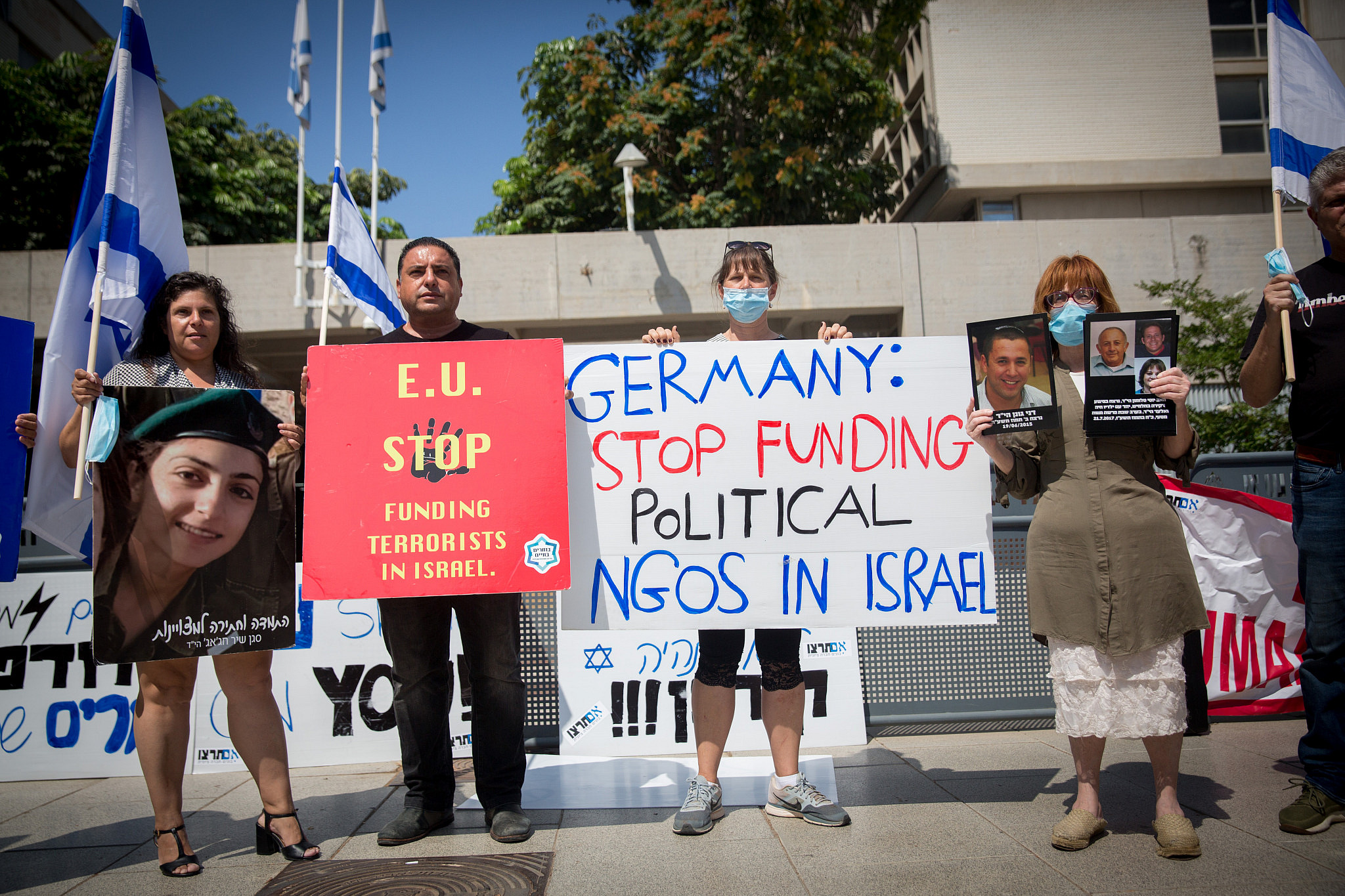
The freezing of funds came despite the fact that there was no evidence linking UAWC as an organization to the violent attack in Ein Bubin. But as far as NGO Monitor and UKLFI are concerned, “guilt by association” is the perfect strategy to pursue.
Both organizations, which have links to the Israeli government, have been working to undermine the Palestinian rights movement, in part, by accusing them of having affiliations with terrorist groups. NGO Monitor was founded by Gerald Steinberg, a former consultant to Israel’s Foreign Affairs Ministry and National Security Council, under the umbrella of a think tank run by Dore Gold, a former Israeli ambassador to the UN and aide to Benjamin Netanyahu. UKLFI, meanwhile, has organized conferences in partnership with Israel’s UK Embassy.
In response to questions from +972 Magazine about the lack of evidence that led to the Dutch ministry’s decision, Caroline Turner, director of UKLFI, said: “It is not correct to say that there is no evidence linking the UAWC to the Ein Bubin attack. Three senior officers of UAWC were arrested in connection with the terrorist bombing.”
‘One of the last obstacles to Israeli apartheid’
The freeze in funds had an immediate impact. According to UAWC, Dutch funds had supported over 100 communities in Area C in the occupied West Bank, home to Palestinians that are vulnerable to Israeli settler encroachment. “The main reason for all the allegations and pressures is because of the work we do, especially in the past few years,” explains Abu Saif.
“When we connect Areas A and B with Palestinian communities in Area C, that on its own is significant,” says Abu Saif. In the past six years, UAWC established 52 cooperatives in the West Bank and Gaza, rehabilitating almost 10,000 dunums of Palestinian land that were under threat of confiscation by Israeli authorities in Area C. The organization also planted nearly two million trees, and developed connecting routes amounting to almost 700 km in distance. UAWC also worked to provide better water access to Palestinians in Area C, where water and sanitation services are regularly interrupted by Israeli settlement expansion.
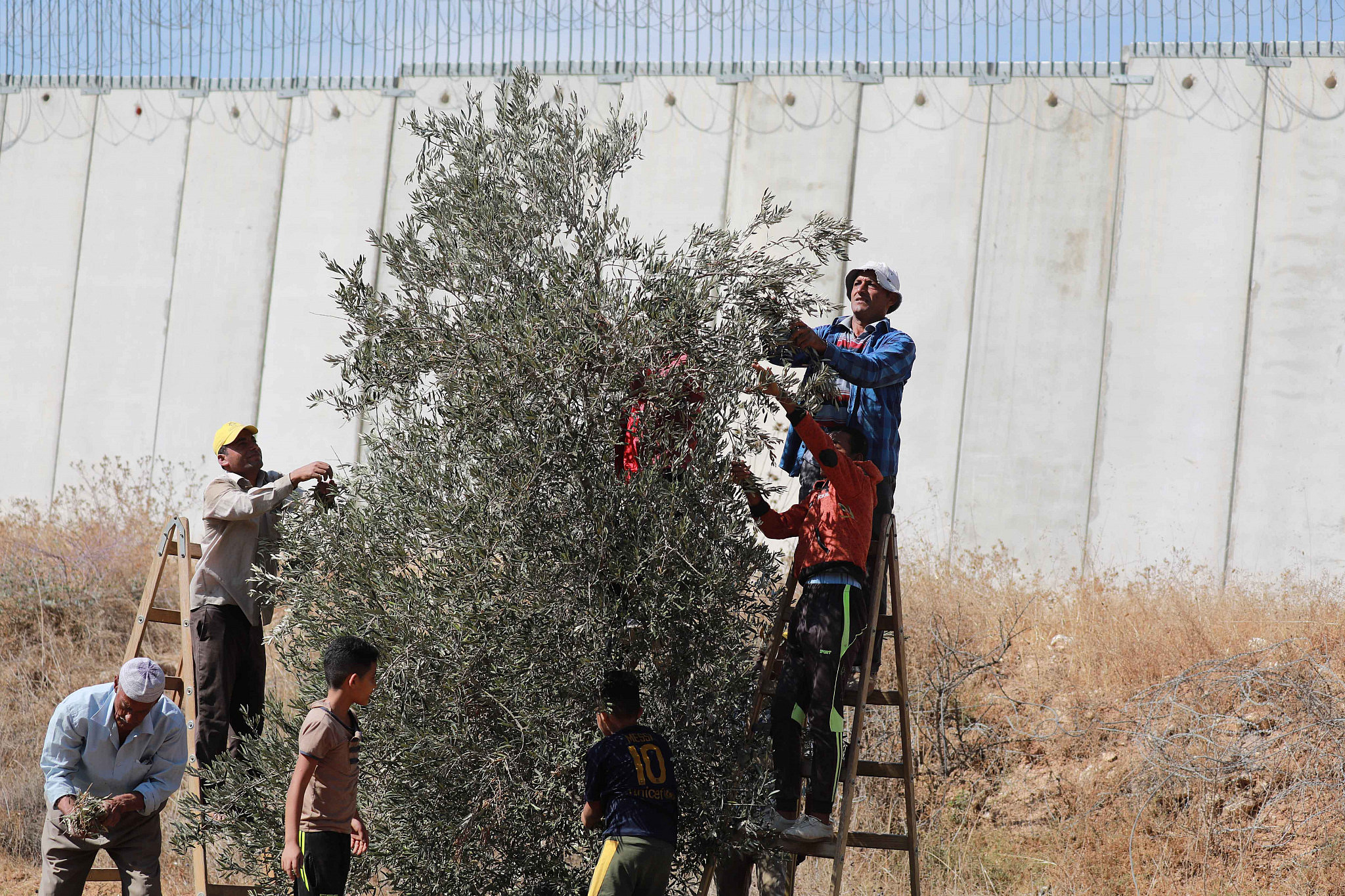
Now, over 300 Palestinians lost job opportunities because six contractors hired by UAWC were forced to cancel Dutch-funded projects to fortify agricultural infrastructure. About 200 Palestinian farmers may also be unable to pay their employees, increasing tensions amongst the agricultural workforce.
A permanent cut in funds would inflict even more damage, UAWC warns: it would hamper the organization’s ability to help Palestinian farmers hold on to their land in the face of unrelenting Israeli settlement expansion. “This is not a punishment for UAWC,” says director Abu Saif, “it is a punishment of the people.”
Abu Saif is now urging the Dutch government to not only undertake an exhaustive evaluation of their funding of his group, but to accelerate the process. “We don’t want them to halt an assessment, but to go ahead. We are confident in our organization and eager to showcase that in the end there are no grounds to these allegations,” he says.
The implications of UAWC’s case go beyond the organization alone.
“This could undermine trust between European donors and Palestinian civil society organizations. That has always been the aim of Israeli lawfare organizations,” says Giovanni Fassina, the Program Director for the European Legal Support Center, a group that provides legal assistance to UAWC and defends Palestinian rights advocates from repression in Europe. “If you manage to undermine the trust between two parties, they’ll decrease the funds and this will stop the activities of civil society organizations. These organizations are one of the last obstacles to Israeli apartheid.”
The funding review comes as Palestinian civil society groups are harshly criticizing a new “anti-terrorism” clause inserted into European Union grant contracts. The clause lists seven Palestinian political factions as “terrorist groups,” including Hamas, Palestinian Islamic Jihad, and the PFLP, and requires Palestinian organizations to ensure that individuals who would benefit from EU-funded projects are unaffiliated with those groups.
With a labored sigh, Abu Saif says, “If the international community is indeed trying to raise the bar [for who they fund], they should also look into the illegality of the settlements and settlers who are largely guiding the efforts of these groups.”
For Palestinian organizations, Abu Saif’s invitation is not unwarranted; for years many have demanded investigations into Israel advocacy groups over their funding sources and ties to extremist causes. Last month, for example, Middle East Eye reported that Ariel Leitner, one of Shurat HaDin’s “anti-terrorism” lawyers, was himself convicted in Israel for attacks which injured six Palestinians in the 1980s. Leitner, who was affiliated with the far-right Kach party, fled to the United States while on bail, but returned to Israel after striking a plea bargain. His wife, Nitsana Darshan-Leitner, is the founder of Shurat HaDin.
Cutting off funds
In addition to crippling the organization itself, a permanent cut to UAWC’s funding would mark a major victory for the Israel lobby by providing a successful blueprint for how to cut off money to Palestinian civil society across the board.
In recent years, Israeli government agencies and an array of Israel-aligned lobby groups — such as Shurat HaDin, UKLFI, NGO Monitor, the International Legal Forum, the Lawfare Project, and more — have deployed a variety of tactics to interfere with Palestinian groups’ fundraising.
The most common method these days involves making allegations of civil society groups’ ties to Palestinian political parties with armed wings, thereby arguing that funding platforms like PayPal could be in violation of anti-terrorism laws if they allow Palestinian groups to use their services.
These efforts have had modest success, but not nearly enough to cut off the flow of money to Palestinian organizations. In 2018, Shurat HaDin convinced the platform Donorbox to close the account of the Boycott National Committee (BNC), the Palestinian group that coordinates the global Boycott, Divestment, and Sanctions campaign, after sending a letter to Donorbox claiming that the BNC had links to terrorism.
In 2019, following a campaign by UKLFI, the crowdfunding platform Global Giving, removed the ability of Defense for Children International-Palestine, a Palestinian children’s rights group, to raise funds for their projects, without informing DCI-Palestine about the specific allegations that lead to the removal. UKLFI, along with NGO Monitor, had claimedthat DCI-Palestine was linked to PFLP.
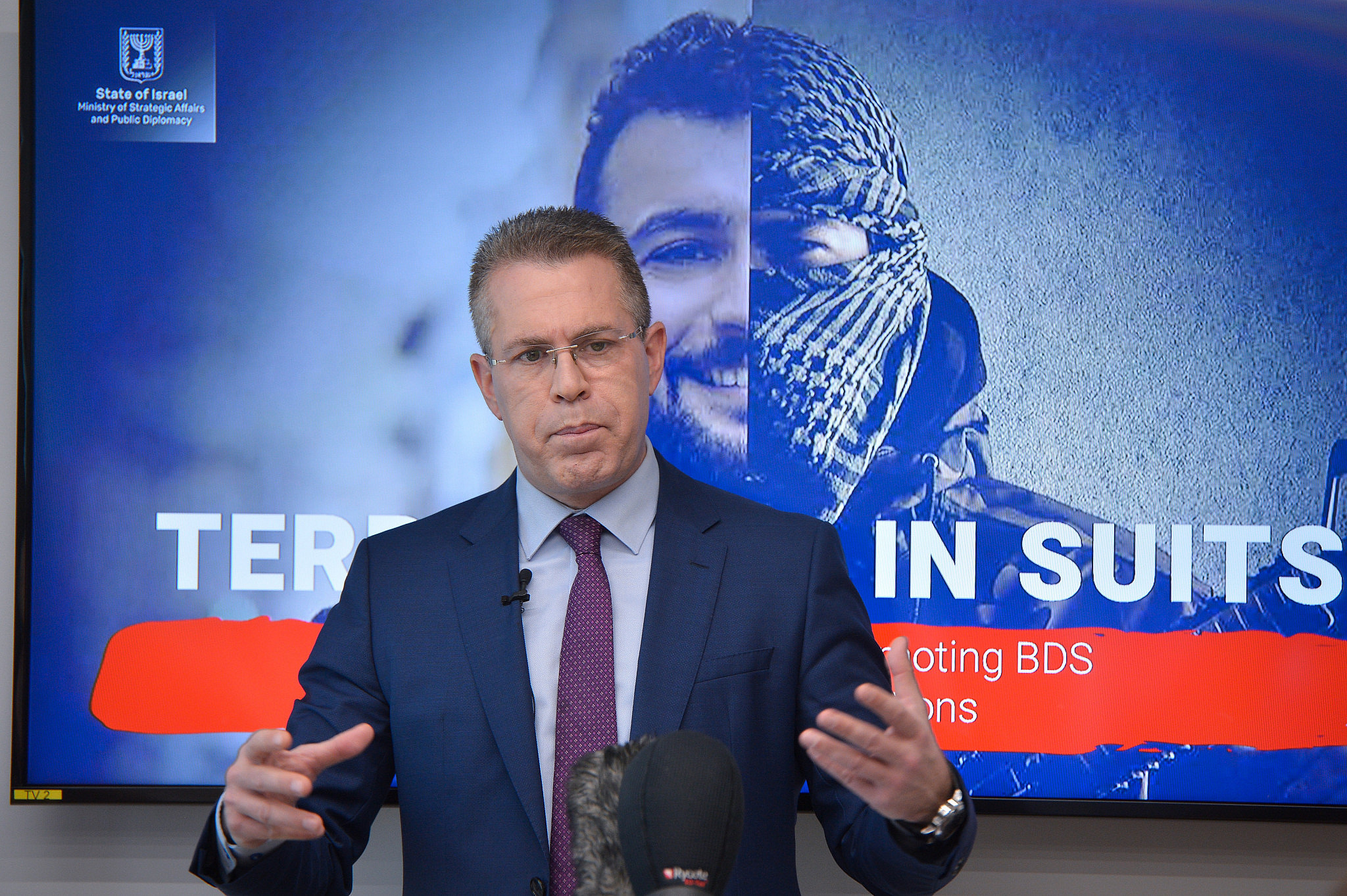
In March 2020, however, as part of settlement over a libel suit brought by DCI-Palestine in the UK, UKLFI clarified that they “did not intend to suggest that the organisation has close current links, or provides any financial or material support to any terrorist organisation.”
In September, Global Giving informed DCI-Palestine that it is in compliance with the crowdfunding platform’s regulations. But because PayPal, the website that Global Giving used to process donations, told Global Giving it would no longer accept funds for DCI-Palestine, the Palestinian children rights group’s projects remain unlisted on Global Giving.
Marlena Hartz, communications director at Global Giving, told +972 Magazine that the organization had determined that nine previous DCI-Palestine board members were linked to the PFLP, though seven of the nine were active in the group before the State Department designated it as a terrorist organization in 1997. The other two board members had PFLP affiliations as candidates in an open election in 2006 which was permitted by Israel.
“The decision not to reactivate DCIP’s partnership with GlobalGiving was arrived at after a lot of deliberation and consideration of multiple needs: for example, taking allegations seriously, living up to our responsibilities to any one partner, and protecting our sustainability and mission as a nonprofit that seeks to support other nonprofits around the world,” says Hartz.
‘Waste of time and capacity’
The consequences on Palestinian groups is evident. “[Battling these allegations] is a massive waste of time and capacity,” says Brad Parker, Senior Adviser for Policy and Advocacy at DCI-Palestine.
“We’re an organization that represents kids in military courts who are ill-treated and tortured and denied lawyers, yet a lot of our capacity goes to responding to donor requests and defending the integrity and reputation of staff members. The ultimate goal is to end funding and chill relationships and marginalize the organization for doing the legitimate human rights work that we do.”
As such, slapping the word “terrorist” on Palestinian groups is a sure-fire way to scare off donors. “Branding a person as a terrorist, or an organization as a terrorist, or having terrorist affiliation is a very powerful tool,” Dr. Yara Hawari, senior policy fellow at the Palestinian think tank Al-Shabaka, tells +972. “Especially since the ‘War on Terror’ campaign [led by George W. Bush’s administration after the attacks of Sep. 11, 2001], governments have been able to get away with abuse and discrimination under the guise of national security, based on loosely defined allegations of terror.”
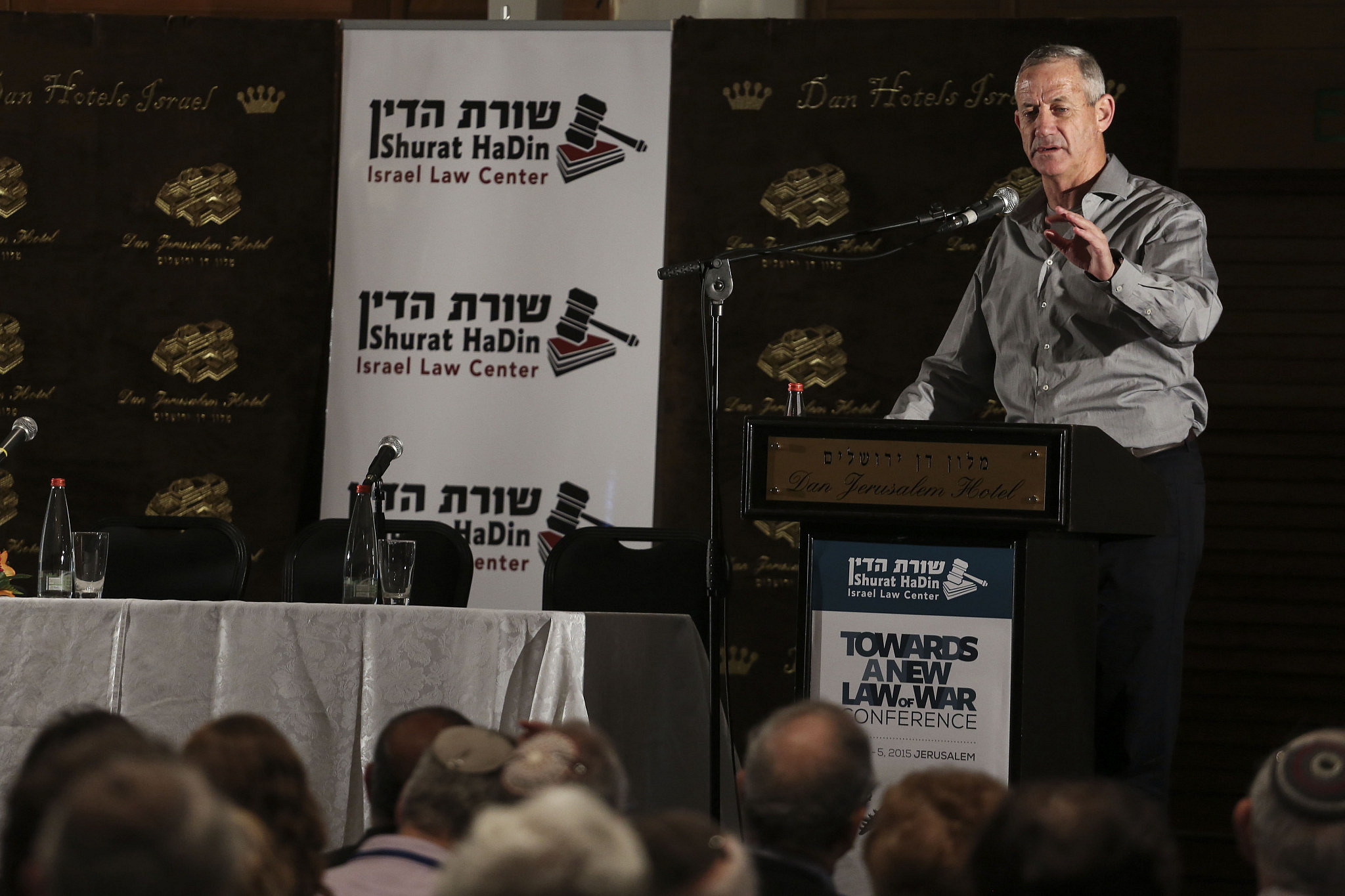
In 2007, the UN’s Special Rapporteur submitted a report noting the problematic nature of Israel’s definition of terrorism and terrorists, which it said resembles that of the United States’ classification and use with regards to detainees held in the notorious Guantanamo Bay detention camp.
In the past, affiliation with Hamas was the most common link evoked to attack or discredit organizations and individuals. Last year, Oxfam faced a lawsuit under the pretext of providing “material support” to Hamas, also considered a terror organization. However, most Palestinian factions under the PLO umbrella are considered terror organizations; Fatah was only removed from the terror list after it signed the Oslo Accords in 1993.
The specific Oxfam project which prodded the accusations in 2019 was also related to agriculture. Placed within the broader context, the impact of these efforts also contributes to continued economic deterioration and food insecurity, with the UN Food and Agriculture Organization recently warning that, “For the first time, Palestinian food security can be significantly affected by reduced availability of food.”
“When you are undertaking projects which promote community resilience and dignified lives, it is a threat,” Abu Saif tells +972. “For UAWC, not only are we not affiliated or associated with any political parties or agendas, but our strategies and approach sometimes contradict that of the factions and Palestinian authorities. We even critique their shortcomings for addressing social issues as we attempt to fill their gap.”
Dutch elections fueling attacks
Collectively, UKLFI and NGO Monitor have published dossiers on UAWC’s alleged ties to the PFLP and sent a number of letters to European governments and regulators, all seeking to undermine European funding to UAWC. Nonetheless, it took until July 2020 for this global campaign against Palestinian civil society to find some success at a governmental level.
One key reason why the Dutch government made their decision to freeze funds was because UAWC employees had been arrested over the Ein Bubin attack. Palestinian rights advocates, however, have urged the Netherlands to look critically at Israel’s claims because the Shin Bet had allegedly tortured Arbeed, the UAWC employee that Israel says oversaw the attack.
The freeze also came as a result of pressure from Dutch political parties — including the Christian Union, a member of the center-right coalition — who disagree with their government’s long history of funding Palestinian civil society, and who are now allying with right-wing pro-Israel groups.
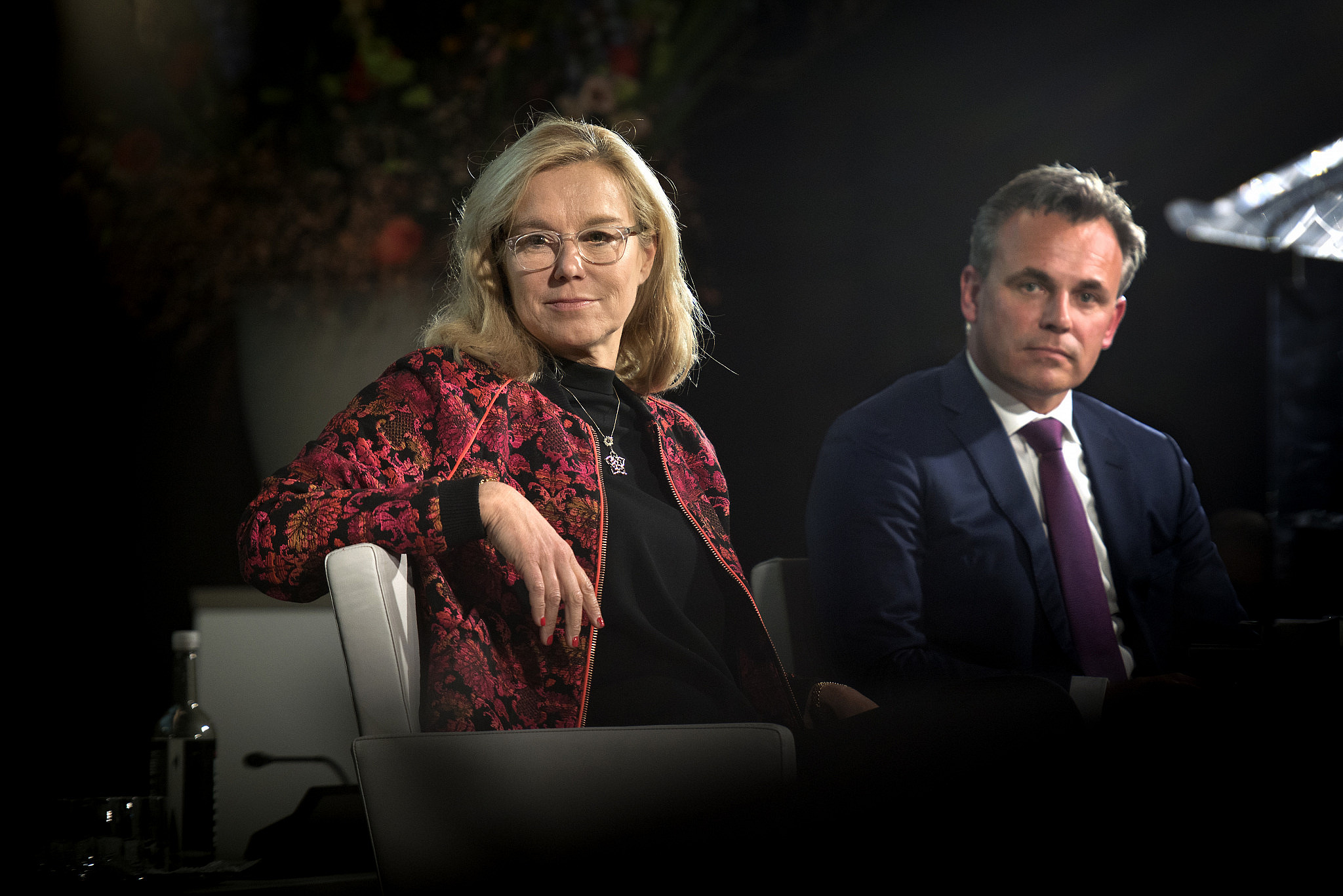
But on March 17, Dutch voters will elect a new government. The leader of the progressive party, D66, is Sigrid Kaag, the current minister for foreign trade and development cooperation, which is the government office responsible for funding UAWC. Depending on how well her party does, she could have a shot at becoming the first Dutch female prime minister.
The Dutch right wants to stop that prospect in its tracks, and are now using Kaag’s oversight of funding for UAWC as a political cudgel to attack her. “Attacks on UAWC are, by extension, attacks on [Kaag’s] ministry and may be used as political ammunition in the upcoming elections,” says Gerard Jonkman, Director of The Rights Forum, a Dutch group that focuses on Israel-Palestine.
Even before the current controversy around UAWC, Kaag was a target for her support of Palestinians. In June 2020, Geert Wilders, the anti-Muslim leader of the far-right Party for Freedom, tweeted a picture of Kaag with Palestinian leader Yasser Arafat and wrote: “Arafat was one of the greatest terrorists of the last century. @SigridKaag adored him. That alone makes her unfit to become prime minister.”
Removing an obstacle to settlement building
The bigger backdrop to the funding freeze, however, is the years-long campaign by Israel advocacy groups to undermine UAWC’s work in Area C, the two-thirds of the occupied West Bank that falls under full Israeli civil and security control.
UAWC is the largest Palestinian agricultural development institution operating in both the Gaza Strip and the West Bank. And it is one of the few Palestinian non-profits focused especially on supporting agricultural projects in vulnerable Palestinian communities in Area C, where Israeli settlements are heavily concentrated.
“Investing in agriculture and planting trees is a way of resisting Israel’s occupation on the ground,” UAWC’s Abu Saif explains. “It is for this reason that we are being attacked.”
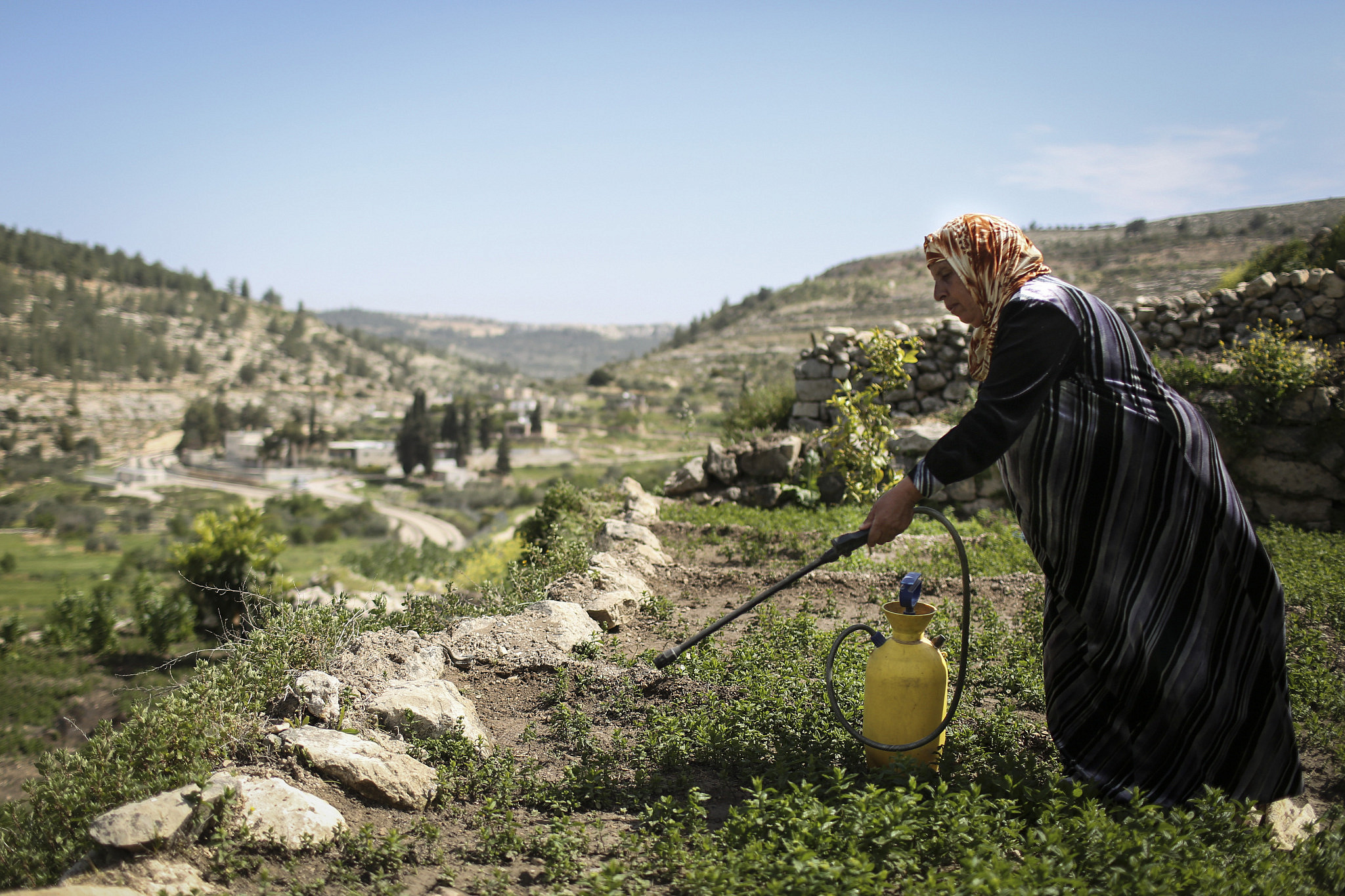
Undermining the work of UAWC, then, accomplishes a key goal of the Israeli settler movement.
“While the Israeli military clears the space for settlements by using bulldozers, UKLFI [and] NGO Monitor attempt to clear the European diplomatic space of blocks on settlements by using reputational attacks on Palestinian NGOs who raise the issues,” said Ryvka Barnard, Senior Campaigns Officer for the UK group War on Want, which has also been targeted by UKLFI.
“NGOs like UAWC create an obstacle for settlement building because they collect evidence for advocacy in the EU, calling out Israel’s illegal activity [like] structure demolitions and settlement building. So in the eyes of groups like UKLFI, they need to be discredited.”
Asked by +972 about claims that the campaign against UAWC is about harming Palestinian groups’ ability to document Israeli rights abuses and resist settlement expansion, Turner, the head of UKLFI, said that “UKLFI does not want terrorist groups to be funded by the EU or by any other government.” She added that while her organization “are certainly not against funding of legitimate Palestinian organisations,” it insists that the UAWC “has strong links to the PFLP terrorist group and as such should not be funded by European or any other governments.”
Despite these difficulties, the UAWC is pressing on with its work. “Right now the general atmosphere is economic insecurity,” Abu Saif says with a sigh. “We’re afraid we won’t fulfill our promise, but there is also a feeling of empowerment amongst us. In the end our goal is to serve our people, and just as we started as volunteers, we have been considering the potential of returning to working as volunteers.”
CORRECTION: This article previously mentioned that the Dutch parties pressuring the government to limit funding to Palestinian civil society were not in the center-left governing coalition; this has been corrected to clarify that one of these parties, the Christian Union, was part of the center-right coalition.
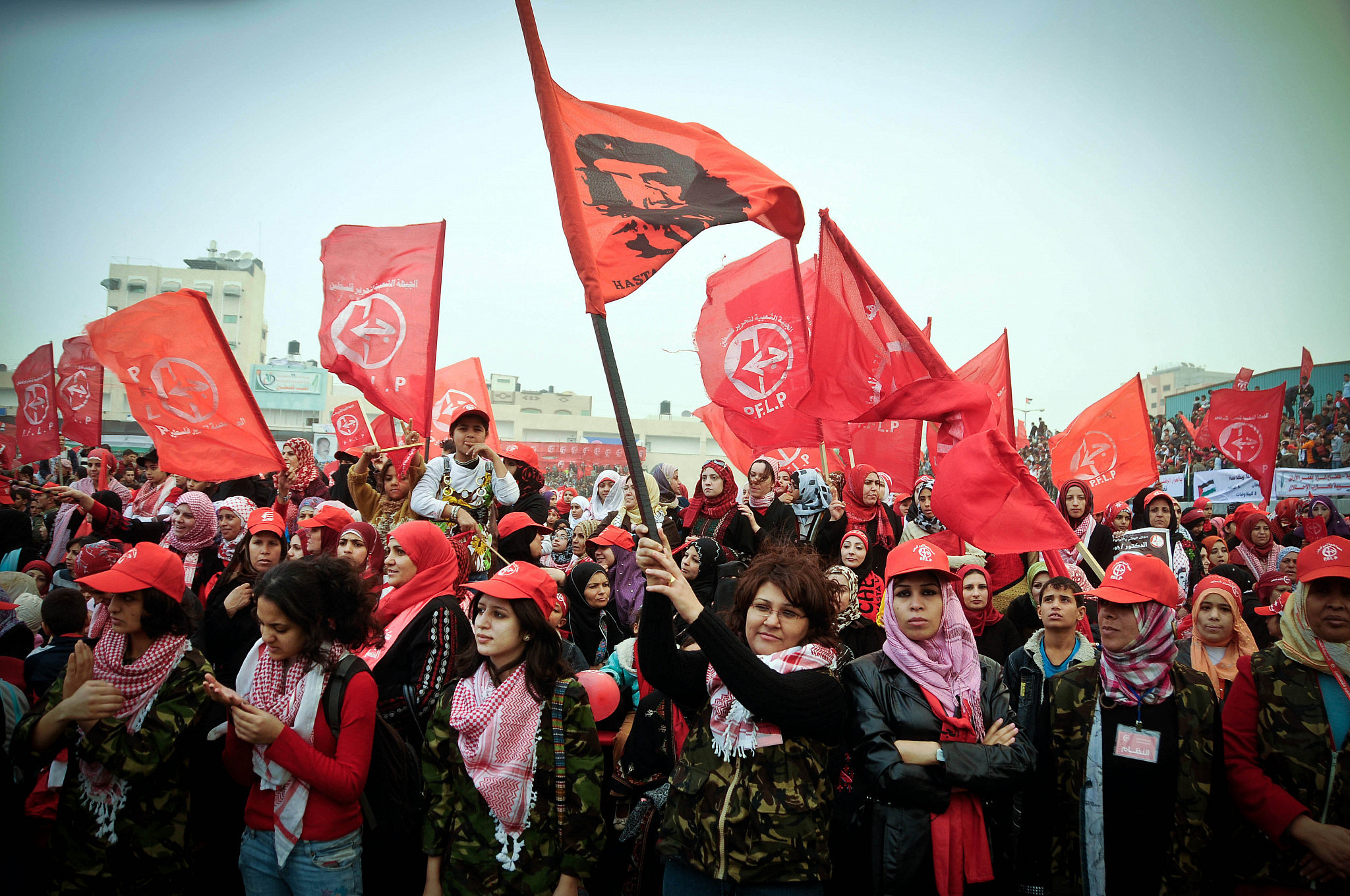
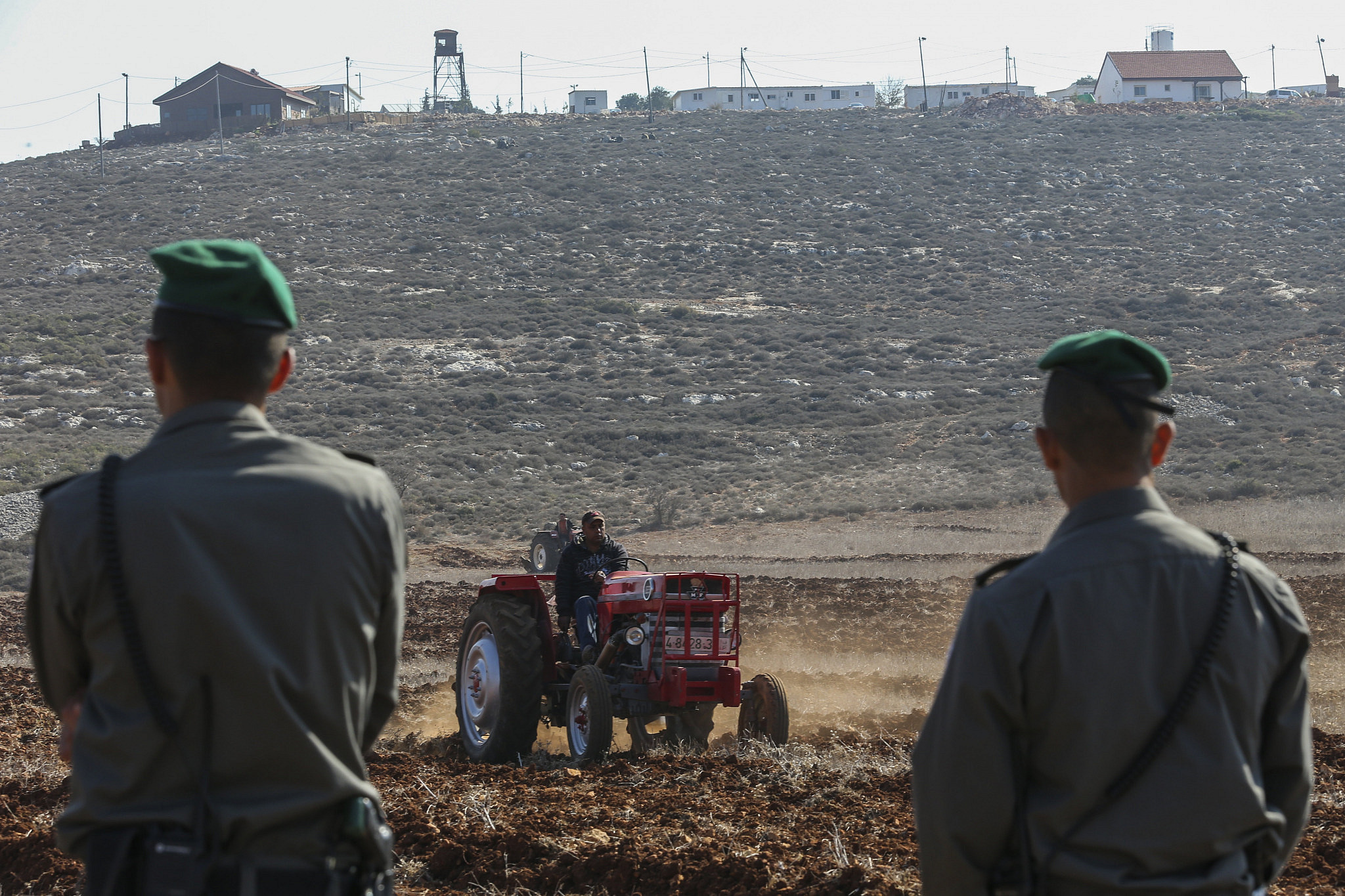





Geen opmerkingen:
Een reactie posten